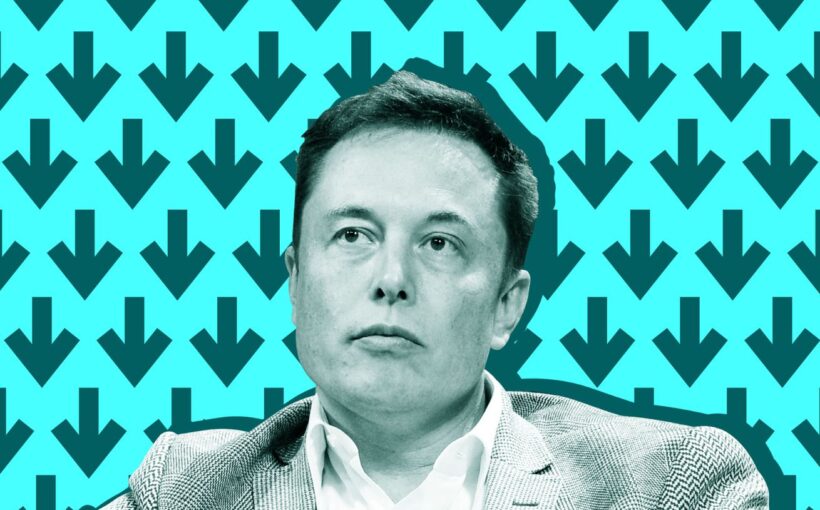The world’s richest person, Elon Musk, just announced that he’s a “big believer in the principles of Christianity” and “a cultural Christian”. Musk’s reasons are moral and political – he believes Christianity can boost both happiness and birthrates.
Musk joins many western conservative thinkers troubled by a rapidly changing world. Some of these thinkers have embraced Christianity to combat these changes. Yet they often struggle to accept Christianity’s central supernatural claims, like Christ’s resurrection.
Adopting Christianity at least partly as a way to achieve political ends could backfire. However, such thinkers may have another option. If we can have coffee without caffeine and beer without alcohol, why not Christianity without miracles? Could conservative thinkers embrace “Christianity-lite” and still achieve their aims? As an academic who has examined the meeting point between religion and psychology, I find this an intriguing question.
In conservative intellectual circles, the receding tide of Christianity is turning. For some, the appeal is aesthetic. The prominent atheist, Richard Dawkins, calls Christianity’s core claims “obvious nonsense”, but he still identifies as a “cultural Christian” because he enjoys hymns and cathedrals.
Others see moral value in Christianity. The British conservative commentator Douglas Murray calls himself a “Christian atheist”, rejecting key Christian beliefs, but valuing its moral ideas like the “sanctity of the individual”. US psychologist and media personality Jordan Peterson acts “as if” God exists because for him, it provides meaning, purpose and order.
Some see political value in Christianity. Dawkins values it as “a bulwark against Islam”. Musk thinks it can increase birthrates and prevent population collapse.
When writer Ayaan Hirsi Ali converted to Christianity, she cited political reasons, claiming Christianity was the only way the west could combat “wokeness”, Islam and authoritarian regimes. She later clarified: “I choose to believe that Jesus rose from the dead”, yet added, “what is even more real for me is the wisdom in that story, the morality”.
The evidence for the benefits these thinkers perceive in Christianity is complicated. Researchers argue religion does not create morality, but orientates it towards issues.
Religious people are more likely to hold moral values that maintain social order. These include loyalty, conformity and respect for tradition and authority. They are also more likely to have moral values that promote self-control.
So, conservative thinkers might be right in believing Christianity can support the social order they feel is threatened. But this is not a new idea. Egyptian pharaohs used religion to aid social stability. Today, in China, President Xi Jinping uses Confucianism for such purposes.
Yet, many conservative intellectuals struggle to believe Christianity’s core supernatural elements. Re-enchanting the world is difficult. So, can the benefits of Christianity be retained without believing such claims?
The shadow of a corpse
Some conservative intellectuals think the west has already adopted Christianity-lite. Many point to the book Dominion: The Making of the Western Mind (2019), by historian Tom Holland.
Holland argues that despite declining religious belief, Christian ideas remain central to western civilisation. He views liberalism – our dominant political philosophy – as secularised Christianity. For him, core western ideas, like universal human rights, equality and dignity, stem from Christianity.
In this view, our moral values are the vapour trails of a vanishing Christianity or, as Holland puts it, “the shadow of a corpse”. This causes some to worry that these values may lack vigorous defenders and be unable to bind society together.
There may be some truth here. Research into “sacred values” shows some people have values they’ll defend, regardless of cost. When people violate our sacred values, parts of our brain that weigh up costs and benefits of our actions shut down.
A godless morality may lack the sacredness needed to promote the actions conservatives hope for. This might lead intellectuals to feign belief in Christianity or to find a way to believe.
Christian disinformation
Public intellectuals might promote Christianity for perceived benefits while feigning belief. For them, Christianity would become a “noble lie” – a falsehood knowingly professed by elites to ensure social stability. Today, we call such falsehoods disinformation.
In addition to ethical concerns, this approach would likely fail. You can accept a myth because you think it works to your advantage. But using sacred values for self-interested purposes makes them feel less sacred and diminishes their power.
Those playing with holy fire also risk being biblically burned. Adopting Christianity as a noble lie would support those who want to abandon the separation between church and state. This includes US Catholic integralists who want their government to promote Catholic values. Using Christianity to fight authoritarian regimes abroad could create religious authoritarianism at home.
What would it take for sceptical conservative thinkers to believe in Christianity? The philosopher Giambattista Vico (1668–1744) suggested that our age of reason and self-interest might need society to collapse into “primitive simplicity” for faith to arise again.
A less apocalyptic solution is to realise that many Christians already subscribe to Christianity-lite. A quarter of self-identified British Christians don’t believe Jesus was resurrected.
Such doubts are not limited to congregations. Some clergy feel the same way. A study led by the famous philosopher and atheist Daniel Dennett in 2010 interviewed clergy who doubted or disbelieved.
One pastor explained there were many clergy who, “if you were to list the five things that you think may be the most central beliefs of Christianity, they would reject every one of them”. Another minister rejected the virgin birth and Jesus’ divinity, yet still believed in God.
This shows that some people are comfortable rejecting central claims of Christianity, while still sensing a God-shaped hole in the world and identifying as Christian. But, when push comes to shove, will such beliefs act as sacred values and generate the societal benefits conservatives hope for? God knows.
![]()
Simon McCarthy-Jones receives funding from the European Union’s Horizon 2020 program via a Marie Skłodowska-Curie Actions Innovative Training Network.



